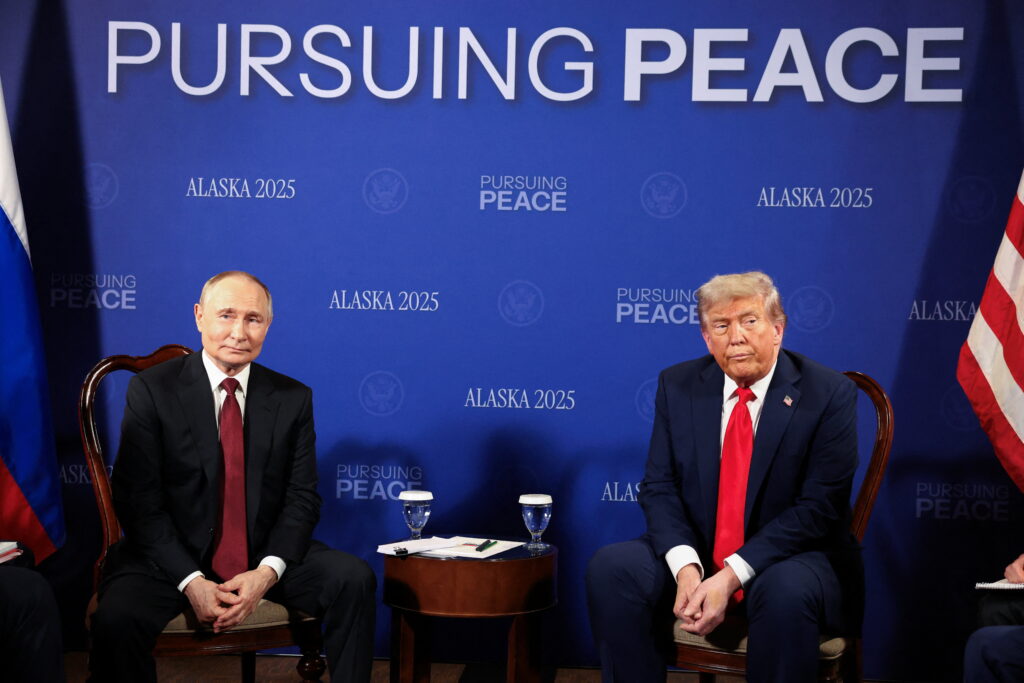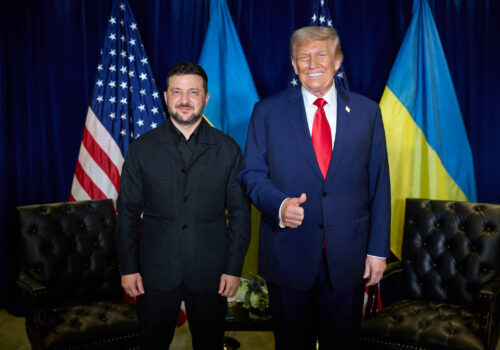Many Ukrainians agree with US President Donald Trump’s criticism of the Russia policies adopted by his predecessors. Like Trump, they believe that the excessive caution displayed by both Barack Obama and Joe Biden only served to embolden Vladimir Putin. This shared sentiment led to a surprising degree of optimism in Ukraine when Trump returned to the White House, despite his perceived ambivalence toward the country.
Much has happened since then to dampen any initial Ukrainian enthusiasm. Rather than getting tough with Putin, Trump has spent much of 2025 trying to win the Kremlin dictator over by offering generous peace terms while pressing Kyiv to make painful concessions. Putin has responded by intensifying his invasion. This has included major new offensives on the front lines of the war and a sharp escalation in the bombardment of Ukrainian cities.
With Trump’s patience now apparently wearing thin, there has recently been a striking change in United States rhetoric toward the Kremlin. The US leader has even taken to mocking Russia as a “paper tiger.” In order to pressure Putin into accepting a peace deal, however, Trump will have to match his increasingly harsh statements with decisive actions.
Stay updated
As the world watches the Russian invasion of Ukraine unfold, UkraineAlert delivers the best Atlantic Council expert insight and analysis on Ukraine twice a week directly to your inbox.
While Ukrainians are grateful for all the international support their country has received since the onset of Russian aggression in 2014, there is also a strong sense that the democratic world has been far too slow and uncertain in its efforts to deter the Kremlin. For over a decade, the West’s underwhelming sanctions, limited military support for Ukraine, and obvious reluctance to risk escalation have been interpreted in Moscow as a tacit green light to go further.
The feeble reaction to the Russian seizure of Ukraine’s Crimean peninsula in early 2014 set the tone for all that was to follow. Rather than uniting to oppose the first major European land grab of the twenty first century, Western leaders urged Ukraine not to respond to Russia’s unprecedented attack and even praised Kyiv for showing “restraint.” This appeasement led directly to Russia’s covert invasion of eastern Ukraine and ultimately set the stage for the full-scale invasion of 2022.
Trump is correct when he claims that Putin invaded Ukraine because he believed he would not face a strong response from the United States and its European allies. However, this has not yet led to a more decisive stance from the White House to match the current administration’s talk of “peace through strength.” Trump’s recent change in tone and his unprecedented criticism of Russia certainly send the right signal, but Putin will not be moved by words alone.
While Trump’s somewhat unconventional approach to diplomacy has left many frustrated, he can take credit for a number of encouraging developments. Most significantly, he has obliged Europe to take its own security more seriously and pressed European leaders to accept greater responsibility for supporting the Ukrainian war effort. By agreeing to sell US weapons to Ukraine via Europe, he has also established a potentially long-term format for stable and reliable arms deliveries to Kyiv.
Efforts to improve relations with Russia have proved far less successful. While Moscow has been careful to voice its theoretical support for US-led peace efforts, Putin has repeatedly attempted to stall the process and play for time. Meanwhile, he has continued to escalate the invasion. During Trump’s time in office, Russia has dramatically increased drone and missile attacks targeting Ukraine’s civilian population, setting a new daily record in early September. By his actions, Putin has rejected Trump’s calls for peace and made it abundantly clear that he has no interest in ending the war.
Eurasia Center events

There are now indications that Putin’s unwillingness to compromise has finally forced Trump’s hand. His recent statement that Kyiv can “win all of Ukraine back in its original form” was widely seen as a major shift in the United States stance. There have also been reports of more tangible changes in Washington such as a growing readiness to expand intelligence sharing with Ukraine to enable deep strikes inside Russia, along with the possible delivery of Tomahawk missiles. Kyiv and Moscow will both be watching closely to see whether these developments signal the start of a more fundamental change in the Trump administration’s efforts to broker a peace agreement.
One key sign would be Trump’s willingness to provide Ukraine with longer term indications of his support. This relates to US arms deliveries and also to the provision of security guarantees. So far, the mixed messages coming from the White House on these crucial issues have encouraged Putin to believe he can ultimately outlast the West in Ukraine.
The US leader can also turn up the pressure on Russia’s allies and enablers via secondary sanctions and other economic measures. Since 2022, Russia has found a large number of willing international partners ready to help the country bypass Western sanctions. The obvious answer is to target the authoritarian alliance that supports Putin and helps fund his war machine.
In order to make any progress, Trump must convince Russia to take his talk of peace through strength seriously. Moscow is currently betting that the United States will eventually grow tired of Ukraine and scale back its diplomatic efforts to end the war. That assumption reduces Russia’s readiness to accept a compromise peace, as Putin is confident that Ukraine will be too weak to resist without US support. However, if Russia can be persuaded that Trump will not abandon Ukraine and is committed to securing the country’s long-term survival as an independent state, Putin will be more likely to engage in serious negotiations.
For more than half a year, Trump has tried to entice Russia to the negotiating table with offers of advantageous peace terms and attractive cooperation opportunities. So far, he has been met with nothing but empty promises and deadly escalations. It is now time to speak to Putin in the language of strength, the only language he truly understands and respects.
Sergiy Solodkyy is director of the New Europe Center in Ukraine.
Further reading
The views expressed in UkraineAlert are solely those of the authors and do not necessarily reflect the views of the Atlantic Council, its staff, or its supporters.

The Eurasia Center’s mission is to enhance transatlantic cooperation in promoting stability, democratic values, and prosperity in Eurasia, from Eastern Europe and Turkey in the West to the Caucasus, Russia, and Central Asia in the East.
Follow us on social media
and support our work
Image: US President Donald Trump meets Russian President Vladimir Putin to negotiate for an end to the war in Ukraine in Anchorage, Alaska. August 15, 2025. (REUTERS/Kevin Lamarque)




